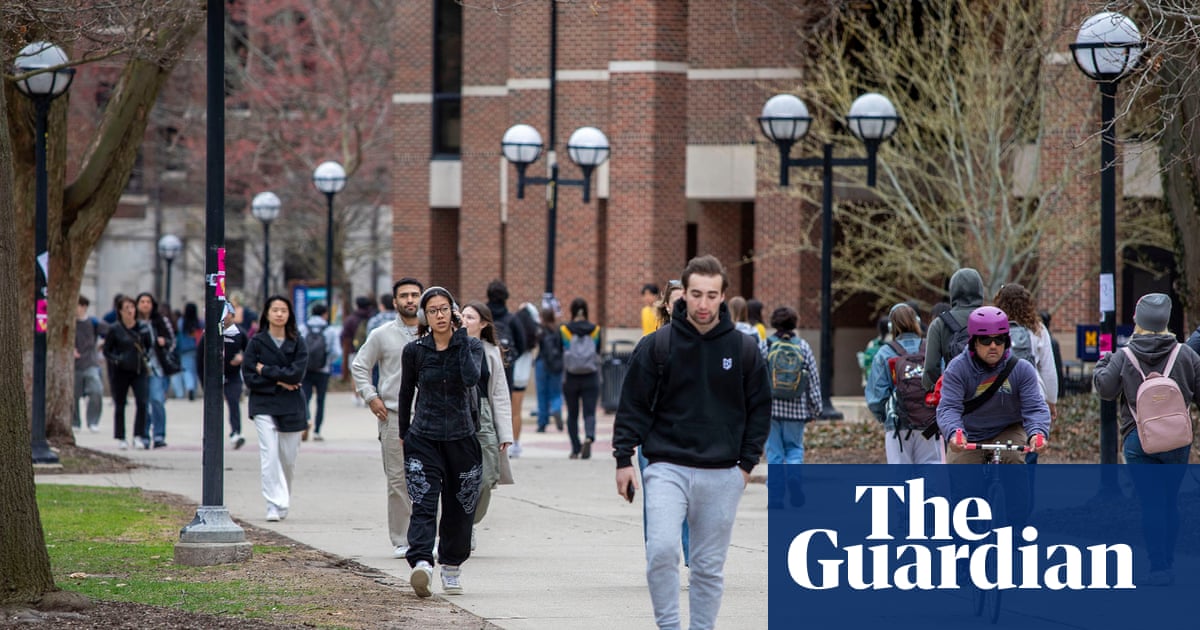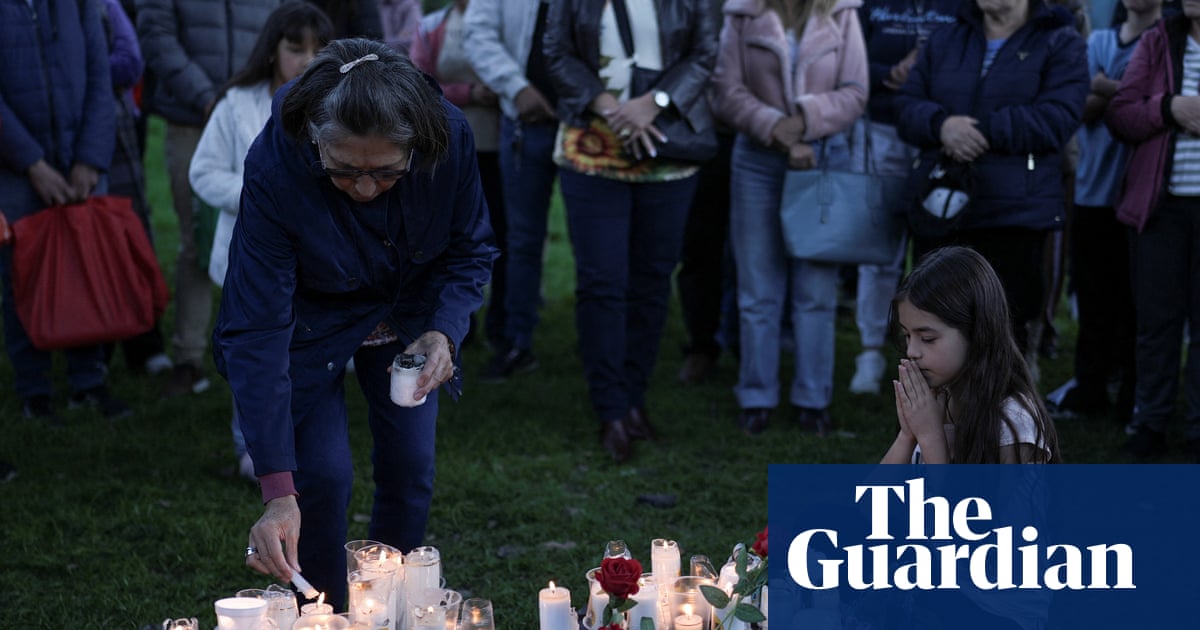Dr Marcus Bernard was shocked to learn last week that the US Department of Agriculture (USDA) had suspended the 1890 National Scholars program that funds undergraduate students’ education in agriculture or related fields at about 20 historically Black colleges and universities (HBCUs).
Bernard is dean of the college of agriculture, health and natural resources at one of those institutions, Kentucky State University. At Kentucky State, close to 40 of the scholars have enrolled since the project’s inception in 1992. Nationwide, the program has supported more than 800 students, according to the USDA.
The 1890 scholarships have created a pipeline for rural and underrepresented students to pursue studies in fields such as animal science, botany, horticulture, nutrition and forestry. Upon graduation, they’re placed in USDA positions around the nation.
The news of the program’s suspension – explained in a single sentence that briefly sat atop the program’s USDA page – sparked a flurry of inquiries at Kentucky State. Bernard said the university had been notified that incoming fall 2025 scholarship selectees would not be funded. Without the federal funds, Kentucky State couldn’t pay for those students’ education or continue current students’ scholarships.
Bernard, anxious students and families got some small relief late Monday when the program reopened – a change noted on the website. It said that applications for the scholarship, which gives full rides to the institutions created from federal lands, would be accepted until 15 March.
However, the future of the scholarship remains unclear as much of the funding that supports the students’ research and fieldwork has been halted.
The reopening of the scholarship program also does not necessarily mean it will be funded, said a USDA representative who requested anonymity. The newly reopened application period was “probably something to appease the public from all the fires that have been lit in the last week”, the official said.

The move to suspend the scholarships drew criticism from various sources, including the 1890 Foundation, the Association of 1890 Research Directors and the Association of Public Land-Grant Universities. In a statement, the representative Alma Adams of North Carolina called the suspension “a clear attack on an invaluable program that makes higher education accessible for everybody, and provides opportunities for students to work at USDA, especially in the critical fields of food safety, agriculture, and natural resources that Americans rely on every single day. This program is a correction to a long history of racial discrimination within the land-grant system, not an example of it. I demand USDA immediately rescind this targeted and mean-spirited suspension and reinstate the 1890 Scholars Program.”
The participating universities had been founded as part of the second Morrill Act that in 1890 gave federal lands to establish historically Black colleges that specialized in agricultural and vocational education.
Alumni speak out
Alvin Lumpkin was an 1890 South Carolina State University scholar who graduated in 2012. He started as an education major but switched during his sophomore year to study family and consumer studies under the department of agriculture and environmental sciences. He then became eligible to participate in the 1890 program.
While he had various experiences as a scholar, one of his most memorable experiences was being a student firefighter. The 1890 Land Grant Institution Wildland Fire Consortium convened students from across the land-grant universities to obtain basic firefighting training skills and were placed in small towns across the south. “It was students from Alcorn [State University], Fort Valley [State University], South Carolina [State University], and we all went down to [Florida A&M University]. And it was just a beautiful thing to have people from all different fields of study come together and train together,” said Lumpkin.
Lumpkin worked for a month with the National Forest Service in Mount Rogers national recreation area. He gained skills in water sampling and treatment; rescue efforts; and strategic field burns, an Indigenous practice of controlled, intentional fire. “We were on four-wheelers and torched sides of the mountain to burn vegetation so that when lightning strikes, it would not cause a fire,” said Lumpkin.
For Kermit Shockley, being an 1890 scholar at Florida A&M broadened his understanding of what was possible for him. As an engineering major, he prepared trails and bridges across the Appalachian Trail during his summers. Alongside Lumpkin, he learned how to lay gravel, clear paths, administer first aid and patrol the forest to act as the first eyes for law enforcement.
Lumpkin and Shockley responded to natural disasters such as the 2010 Deepwater Horizon oil spill, the largest accidental marine-based spill in history. “It was not a ‘stand back and watch’ moment. It was a ‘let me show you, make your mistakes, and let me teach you,’” said Shockley. With the recent mass termination of thousands of National Forest Service and National Park Service workers, 1890 scholars may be relied upon again to help fill the gaps.
Both men went into public-service careers. After graduation, Shockley went to work for the Department of Defense at Oak Ridge National Laboratory, decommissioning buildings used to enrich uranium during the second world war. Lumpkin’s exposure to law enforcement as an 1890 scholar led him to become an officer with the South Carolina department of juvenile justice. He is now an assistant principal in the Sumter, South Carolina, school district.
A ripple effect
Lumpkin stressed that the impact on the larger 1890 ecosystem will be profound. “There’s so many programs that are going to be affected by not having 1890 scholars doing research in these communities,” he said.
Other education programs have been affected by cuts. Across the 19 land-grant universities, agricultural research and urban agriculture grants from the National Science Foundation (NSF) and workforce training funding from the USDA’s Next Generation of Agriculturalists (NextGen) program have been paused. “All of this is going to be affected until grants have been unfrozen or until we know whether the grants will be cut completely,” said the USDA official.
Aside from the scholarship program, Kentucky State is grappling with another huge loss. Last month, the university was awarded a $1.2m research grant from the 1890 Foundation with funding through the National Forest Service to launch a comprehensive project to increase the tree canopy across Louisville to reduce the impacts of urban heat stress. The funding also prompted the university to launch a robust urban-forestry program. Last week, the university was officially notified that the grant had been terminated.
Defunding the 1890 National Scholars program stands to hurt Kentucky and the larger southern region, where most land-grant universities are located, said Bernard: “We are in communities across the state doing programs that are helping farmers, helping our rural communities, and providing assistance to disaster victims and more.”

 3 months ago
45
3 months ago
45

















































